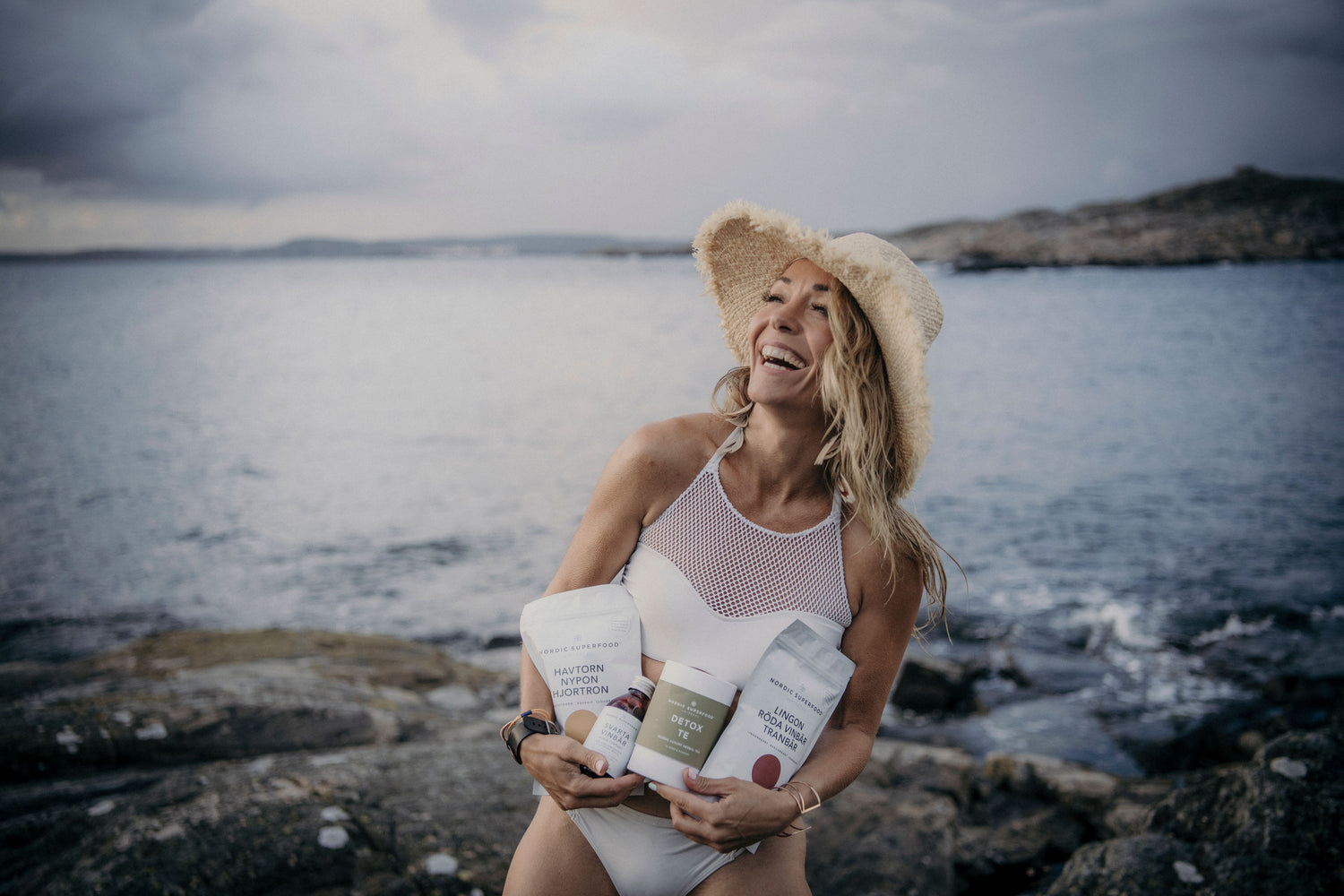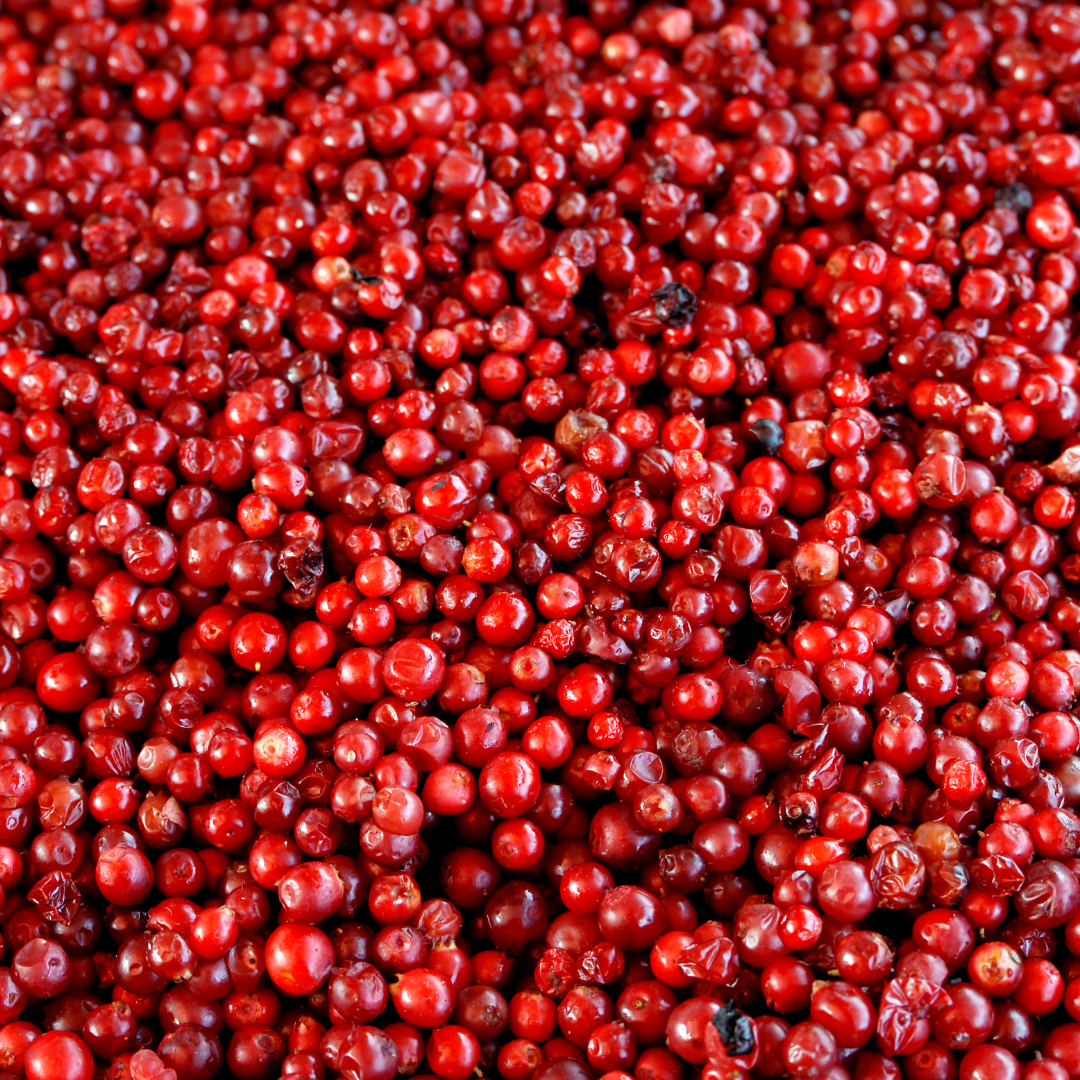
Many people wrongly believe that oils make the skin oily!
It is the opposite! Oils from plants, known as vegetable oils, plant-based oils or botanical oils, contain more nutrition than many conventional "beauty oils" which often contain silicone.
Silicones are added to give a light feeling on the skin. But conventional beauty oils can also contain synthetic fragrances, synthetic preservatives and synthetic emulsifiers that don't nourish your skin, but instead can create an imbalance.
Face creams and lotions mainly contain water, which actually dries out our skin.
Different oils have different properties, but they are all made up of, among other things:
- Essential fatty acids - saturated, unsaturated or polyunsaturated - that support a healthy skin barrier.
- Vitamins - stimulate cell renewal, strengthen collagen, smooth, repair and have an anti-inflammatory effect.
- Phytosterols - beneficial plant substances that strengthen the skin and promote collagen formation.
- Polyphenols - counteract oxidative stress, help protect against sun damage and act as an anti-inflammatory.
- Squalene - found naturally in the skin. Promotes elasticity and gives a beautiful shine.
- Lecithin - helps maintain the normal function of cell membranes.
Almond oil

In ancient Chinese and Ayurvedic traditions, almond oil has been used since ancient times to soothe, hydrate and repair the skin. Thanks to its anti-inflammatory and softening properties, as well as nutritious content, the oil is one of the most popular in skin care today.
Almond oil is a classic skin and massage oil that is semi-fatty and has a mild and sweet nutty scent. It spreads evenly over the skin and is absorbed after a short while. The oil is non-irritating and is therefore excellent as baby oil. Nut allergy sufferers can generally tolerate almond oil, but to be on the safe side, you can apply a little oil to your wrist to see if a reaction occurs.
- Contains vitamin A which stimulates the production of new skin cells and smoothes fine lines.
- Vitamin E has a calming effect and is a natural antioxidant that is said to stimulate blood circulation and prevent the appearance of wrinkles. May also help reduce UV damage.
- Almond oil inhibits the skin's production of sebum and can thus reduce the appearance of acne.
- The oil has soothing properties and can relieve itching.
Jojoba

Jojoba is not actually an oil, but consists of liquid wax substances, which explains why jojoba so effectively binds moisture to the skin.
Cold-pressed jojoba oil is effective softening and protective for the skin. Jojoba mostly contains the monounsaturated fatty acid gadoleic acid, which is found in the fat tissue of the skin. This means that the oil has a soothing and balancing effect on the skin's sebum production. Jojoba oil is therefore suitable for all skin types, even oily, impure and acne-prone skin.
Thistle oil
Thistle oil is a dry and thin oil that gives the skin a really nice glow. It is quickly absorbed without leaving an oily film. It is a valued face oil for oily to normal skin and can be the rescue for problem skin. You can also mix thistle oil with a slightly fattier oil such as jojoba oil or sesame oil to take advantage of the oil's fine properties if you have dry/mature skin. Thistle oil's rich content of the omega-6 fatty acid linoleic acid makes it a very good skin oil for people who have thin, sensitive skin with poor circulation. It is also a good oil for eczema, rough and bumpy skin, large pores, acne and for skin that has aged prematurely.
Shea butter

Shea butter is a natural fat extract that comes from the nuts of the African shea nut tree. Shea butter has been used for hundreds of years for cosmetic purposes thanks to its high content of vitamins and fatty acids that make the butter good for softening the skin. At room temperature, shea butter is solid, but like other types of butter, it melts at body temperature and is thus easily absorbed by the skin.
- Calms down
- Antioxidant
Because it contains high levels of both Vitamin A and E, shea butter can promote antioxidants such as counteracts signs of aging and defend the skin from damage caused by free radicals. When you use shea butter face, it can preserve the skin's radiance and protect against aging.
- Moisturizes
- Makes the skin smooth and can improve elasticity
Shea butter for face and skin favors the skin's own production of collagen. By promoting collagen production, shea butter helps strengthen skin cell renewal, elasticity, skin tightening and strengthening. In addition to this, shea butter contains palmitic acid, oleic acid, stearic acid and linoleic acid which are nutritious for the skin and help it retain moisture.
- Promotes skin renewal
Since the benefits of shea butter face and skin include that it can enhance skin cell renewal, it means that shea butter is very good for skin regeneration and repair of damaged skin cells. The fatty acids in shea butter also have protective properties that can protect wounds from environmental stressors that can disadvantage the healing process.







